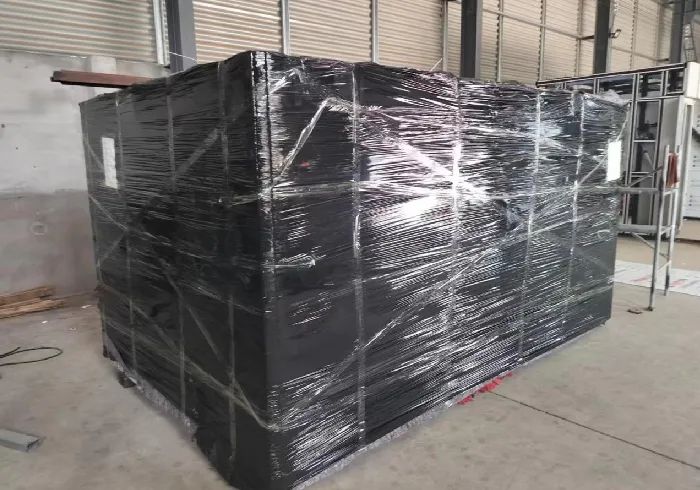
- Afrikaans
- Albanian
- Amharic
- Arabic
- Armenian
- Azerbaijani
- Basque
- Belarusian
- Bengali
- Bosnian
- Bulgarian
- Catalan
- Cebuano
- Corsican
- Croatian
- Czech
- Danish
- Dutch
- English
- Esperanto
- Estonian
- Finnish
- French
- Frisian
- Galician
- Georgian
- German
- Greek
- Gujarati
- Haitian Creole
- hausa
- hawaiian
- Hebrew
- Hindi
- Miao
- Hungarian
- Icelandic
- igbo
- Indonesian
- irish
- Italian
- Japanese
- Javanese
- Kannada
- kazakh
- Khmer
- Rwandese
- Korean
- Kurdish
- Kyrgyz
- Lao
- Latin
- Latvian
- Lithuanian
- Luxembourgish
- Macedonian
- Malgashi
- Malay
- Malayalam
- Maltese
- Maori
- Marathi
- Mongolian
- Myanmar
- Nepali
- Norwegian
- Norwegian
- Occitan
- Pashto
- Persian
- Polish
- Portuguese
- Punjabi
- Romanian
- Russian
- Samoan
- Scottish Gaelic
- Serbian
- Sesotho
- Shona
- Sindhi
- Sinhala
- Slovak
- Slovenian
- Somali
- Spanish
- Sundanese
- Swahili
- Swedish
- Tagalog
- Tajik
- Tamil
- Tatar
- Telugu
- Thai
- Turkish
- Turkmen
- Ukrainian
- Urdu
- Uighur
- Uzbek
- Vietnamese
- Welsh
- Bantu
- Yiddish
- Yoruba
commercial car washing machine
The Evolution and Impact of Commercial Car Washing Machines
In today’s fast-paced world, maintaining a clean vehicle is essential not just for aesthetics, but also for preserving the car's value and longevity. As a result, the demand for efficient and effective car washing solutions has spurred the growth of commercial car washing machines. These machines have not only evolved significantly over the years but also transformed the car care industry, benefiting both car owners and service providers.
The Historical Context
Historically, car washing was a manual process, often labor-intensive and time-consuming. Dedicated car owners would spend hours scrubbing their vehicles to achieve a satisfactory shine. This manual approach posed numerous challenges, including inconsistency in quality and significant time investment. As automobiles became more common in the mid-20th century, there was a pressing need for a quicker, more efficient solution.
The introduction of the first automatic car wash in the 1940s marked a turning point in the industry. These early machines were rudimentary, consisting of brushes and a series of spray jets that cleansed the car’s exterior as it moved through the system. However, technological advancements in the following decades brought about more sophisticated designs and functionalities.
The Modern-Day Car Washing Machine
Today, commercial car washing machines come in various types, including touchless systems, friction-based washes, and self-service options. Touchless car washes utilize high-pressure water jets and advanced detergents to clean vehicles without the risk of scratches, appealing to those concerned about paint preservation. On the other hand, friction-based systems employ soft brushes to provide a more hands-on cleaning experience, delivering a shine that many car enthusiasts appreciate.
Moreover, advances in technology have integrated features such as eco-friendly detergents, water recycling systems, and automated payment options into modern machines. These innovations not only enhance the cleaning process but also contribute to sustainability efforts. Water recycling systems can save thousands of gallons of water daily, making car washes more environmentally friendly while reducing costs for operators.
commercial car washing machine

Benefits for Businesses and Consumers
For business owners, investing in commercial car washing machines can be a lucrative opportunity. The initial investment is often outweighed by the potential for substantial revenue, especially in urban areas where individuals may lack the space or time to wash their cars manually. The efficiency and speed of these machines can handle high volumes of vehicles, resulting in shorter wait times and increased customer satisfaction.
For consumers, the convenience of commercial car washes is unmatched. With the option to choose from a variety of wash packages, including detailing services, customers can easily find a solution that meets their needs. This convenience, paired with the quality of service provided by commercial machines, has led to a growing trend where many car owners prefer these services over manual washing.
Challenges and Future Trends
Despite their many advantages, the commercial car washing industry is not without challenges. Increased competition, rising operational costs, and the need for regular maintenance can impact profitability. Additionally, as consumers become more environmentally conscious, businesses must continually adapt their practices and invest in sustainable technologies to remain competitive.
Looking ahead, the future of commercial car washing machines is promising. With ongoing advancements in automation, artificial intelligence, and machine learning, we can expect car washing processes to become even more efficient. For instance, some companies are exploring the use of robotics to enhance the speed and accuracy of the washing process. Furthermore, integrating mobile app technology will allow customers to pre-book services, track wait times, and even select their preferred wash settings.
Conclusion
In summary, commercial car washing machines have come a long way from their humble beginnings. They represent an essential component of the automobile care industry, providing an efficient solution for clean cars while significantly benefiting businesses and consumers alike. As technology continues to advance, the potential for further innovation in this space is vast, ensuring that the industry will continue to thrive in the years to come.
-
Integrating Aqua Tunnel Car Wash in Shopping CentersNewsJun.24,2025
-
Gas Station with an Auto Car Wash MachineNewsJun.24,2025
-
Efficiency in Your Aqua Tunnel Car Wash: Power & Water-SavingNewsJun.24,2025
-
Car Wash Business with Advanced Auto Car Cleaning MachinesNewsJun.24,2025
-
Balancing Setup Costs with Aqua Tunnel Car WashNewsJun.24,2025
-
Aqua Tunnel Car Wash: Eco-Design for the Energy-Savvy EntrepreneurNewsJun.24,2025



